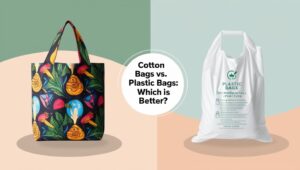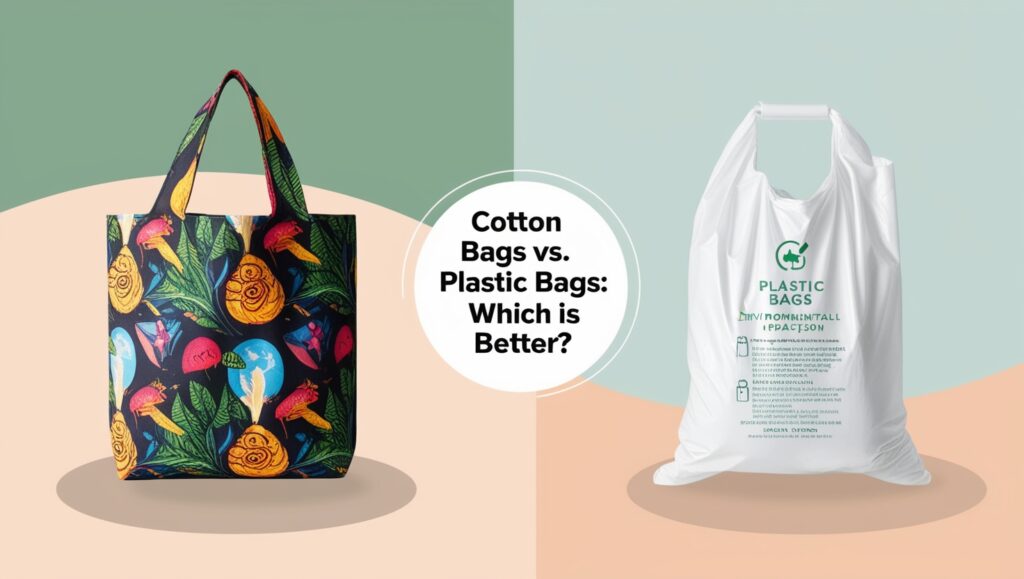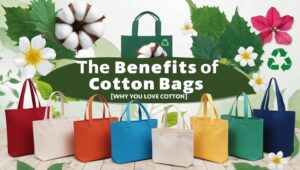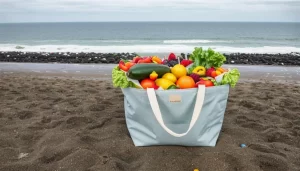When it comes to carrying our groceries, clothing, or daily essentials, the choice between cotton and plastic bags has become a significant topic of discussion. Both have their pros and cons, but understanding which one is better requires a deep dive into various factors. Let’s explore the history, environmental impact, economic considerations, and much more to help you make an informed decision.

History of Cotton Bags
Origin and Evolution
Cotton bags have a rich history dating back to ancient civilizations where natural fibers were the primary materials for making all kinds of bags. They were initially used for carrying grains and other essentials. Over time, the production of cotton bags evolved, incorporating better techniques and designs to meet modern demands.
Traditional Uses
Traditionally, cotton bags were used in agriculture, markets, and households. Their natural and durable properties made them a favorite for carrying heavy items and for everyday use.
History of Plastic Bags
Invention and Popularization
Plastic bags were invented in the 1960s and quickly gained popularity due to their convenience and low cost. They became a staple in supermarkets and retail stores, revolutionizing the way people carried their purchases.
Common Uses
Plastic bags are commonly used for groceries, packaging, and waste disposal. Their lightweight nature and ability to carry significant weight make them a practical choice for many consumers.
Environmental Impact
Cotton Bags
Production Process
The production of cotton bags involves the cultivation of cotton plants, which can be resource-intensive. However, advancements in sustainable farming practices are reducing the environmental footprint.
Biodegradability
One of the significant advantages of cotton bags is their biodegradability. Unlike plastic, cotton decomposes naturally, making it an environmentally friendly option.
Plastic Bags
Production Process
The production of plastic bags involves the use of fossil fuels, contributing to pollution and resource depletion. The manufacturing process also emits harmful chemicals into the environment.
Non-biodegradability
Plastic bags are notorious for their non-biodegradable nature. They can take hundreds of years to decompose, posing a long-term threat to the environment and wildlife.
Economic Impact
Cost of Production
Plastic bags are cheaper to produce compared to cotton bags. However, the long-term economic effects of plastic pollution, including cleanup costs and health impacts, can be substantial.
Long-term Economic Effects
Investing in cotton bags may have higher upfront costs, but they are more durable and reusable, potentially saving money in the long run. Additionally, the shift towards sustainable products can boost the economy by creating green jobs.
Durability and Usability
Cotton Bags
Strength and Longevity
Cotton bags are known for their strength and longevity. They can withstand heavy loads and repeated use, making them a reliable choice for consumers.
Versatility
Cotton bags are versatile, suitable for various purposes such as shopping, carrying books, and even as fashion accessories. They come in numerous designs and sizes to cater to different needs.
Plastic Bags
Strength and Longevity
While plastic bags are strong and can carry heavy items, they are prone to tearing and are not as durable as cotton bags. They are typically designed for single-use, which limits their longevity.
Versatility
Plastic bags are versatile in terms of their usage but lack the aesthetic appeal and customization options available with cotton bags.
Health Considerations
Safety and Hygiene
Cotton Bags
Cotton bags are generally safer for food storage as they are less likely to contain harmful chemicals. They can also be washed regularly to maintain hygiene.
Plastic Bags
Plastic bags can leach harmful chemicals, especially when in contact with hot food. They are also more challenging to clean, making them less hygienic over time.
Aesthetic Appeal
Design and Customization
Cotton bags offer a wide range of design and customization options. From printed logos to colorful patterns, they can be tailored to reflect personal style or brand identity.
Fashion Trends
Cotton bags have become a fashion statement, often seen in the hands of eco-conscious consumers. They align with the trend towards sustainable and ethical fashion.
Consumer Preferences
Popularity Trends
There has been a noticeable shift in consumer preferences towards cotton bags, driven by environmental awareness and the desire for sustainable products.
Consumer Behavior
Consumers are increasingly choosing cotton bags for their durability, eco-friendliness, and aesthetic appeal. The move towards reusable bags reflects a growing commitment to reducing plastic waste.
Legislation and Policies
Government Regulations
Many governments worldwide are implementing regulations to reduce plastic bag usage. Policies such as plastic bag taxes and bans are encouraging consumers and businesses to adopt alternatives like cotton bags.
Bans and Restrictions
Several countries and cities have outright banned plastic bags, leading to a surge in demand for cotton and other reusable bags.
Corporate Responsibility
Sustainable Practices
Businesses are recognizing the importance of sustainable practices. Companies are increasingly offering cotton bags as part of their commitment to reducing plastic waste and promoting environmental stewardship.
Case Studies of Companies
Brands like IKEA and Whole Foods have successfully implemented policies to phase out plaags astic bnd encourage the use of cotton bags, setting an example for others to follow.
Alternatives to Cotton and Plastic Bags
Reusable Bags
Reusable bags made from materials like jute, hemp, and recycled plastics are gaining popularity. They offer similar benefits to cotton bags with added environmental advantages.
Biodegradable Options
Innovations in biodegradable materials are providing new alternatives to traditional plastic bags. These options decompose more quickly, reducing their environmental impact.
Future Outlook
Innovations in Bag Production
The future of bag production lies in sustainable and innovative materials. Research and development are focused on creating eco-friendly options that do not compromise on durability or cost.
Trends to Watch
Keep an eye on trends such as increased use of recycled materials, biodegradable alternatives, and government initiatives promoting sustainability. These will shape the future of how we carry our belongings.
In the debate between cotton and plastic bags, cotton bags emerge as the clear winner in terms of environmental impact, durability, and consumer appeal. While plastic bags may be cheaper and more convenient in the short term, their long-term effects on the environment and health are detrimental. By choosing cotton bags, consumers can make a positive impact on the planet and support sustainable practices.
FAQs
What is the most eco-friendly bag option?
The most eco-friendly bag option is a reusable bag made from sustainable materials such as organic cotton, jute, or recycled fabrics.
How can I dispose of plastic bags responsibly?
You can dispose of plastic bags responsibly by recycling them at designated collection points or repurposing them for other uses at home.
Are cotton bags more expensive than plastic bags?
Initially, cotton bags may be more expensive than plastic bags, but their durability and reusability make them a cost-effective choice in the long run.
Can plastic bags be recycled?
Yes, plastic bags can be recycled, but the process is complex, and not all recycling facilities accept them. It’s best to check local recycling guidelines.
What are the best practices for using reusable bags?
Best practices for using reusable bags include keeping them clean by washing regularly, using them consistently to reduce waste, and choosing bags made from sustainable materials.



![12 Fun Facts About Cotton [ You Must Know ]](https://silmebag.com/wp-content/uploads/2024/07/12-Fun-Facts-About-Cotton-You-Must-Know--300x170.jpg)




